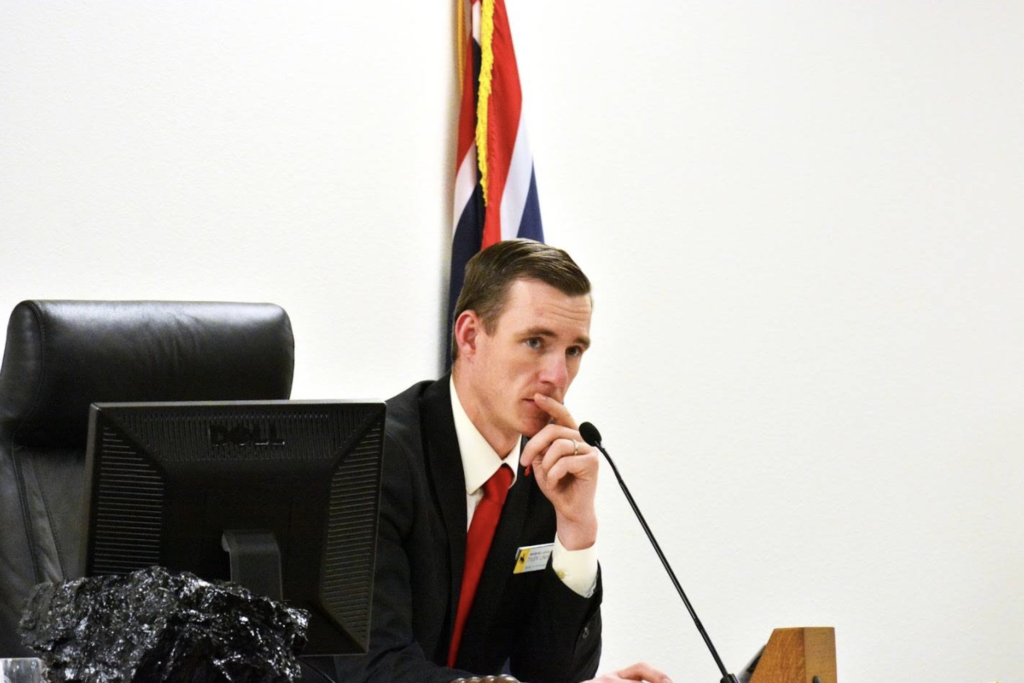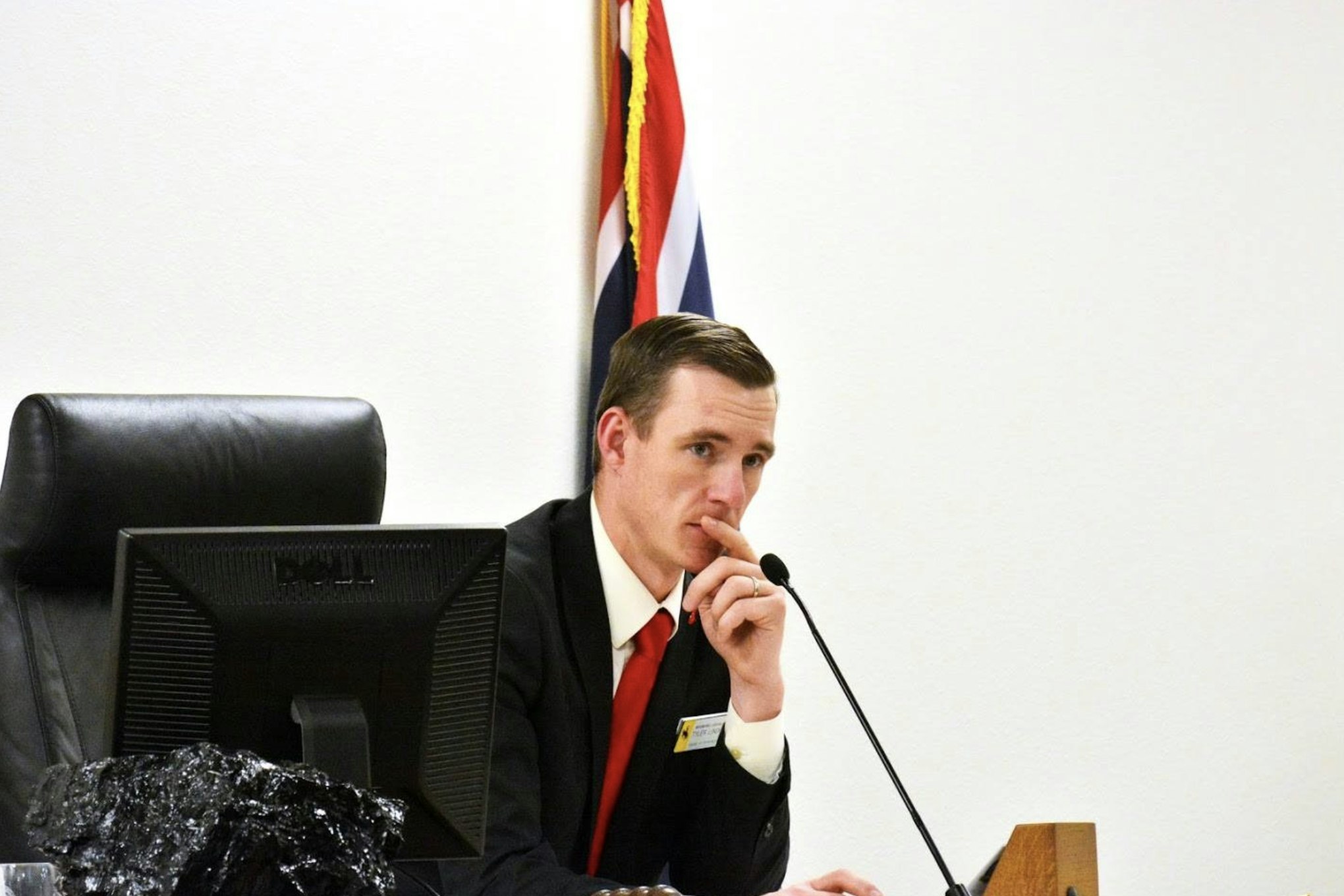
With tensions high in the Middle East, now is the time to increase efforts to bring U.S. troops home, according to a state representative who has been a vocal supporter of ending military involvement in the region.
Following the U.S.-ordered killing of Iranian military commander Maj. Gen. Qassem Soleimani on Friday, Iran retaliated with two missile strikes Tuesday on military bases housing U.S. troops in Iraq, but no casualties were reported.
“It’s kind of this tit-for-tat game going back and forth, and the only ones that suffer are the troops,” said Rep. Tyler Lindholm, R-Sundance. “If we’re going to be serious about putting Americans first, we need to start bringing home the troops.”
Lindholm, a U.S. Navy veteran, took his anti-war message to Washington D.C. in November as a leading member the Wyoming branch of Bring Our Troops Home (www.wybringourtroopshome.com).
The non-profit organization was founded with a goal to end “the Forever Wars and encourage Congress … to support President (Donald) Trump’s plan to withdraw our troops.”
But as the U.S. prepares to send 3,000 additional troops to Iraq amid heightened concerns of a war with Iran, Lindholm said continued military action in the Middle East would only serve to hurt future generations of Americans.
“I do believe these actions are a divergence from Trump’s previous message,” he said. “I liked that Trump was kind of known for not listening to some of his intelligence advisers, but that seems to have changed. Those are the same advisers that got us into this whole quagmire 20 years ago.”
After assassinating Soleimani via drone strike in Baghdad, Iraq, U.S. officials said the strike was meant to prevent an imminent attack on Americans.
“The current narrative we’re being told is Soleimani operated in Iraq and led terrorist types of organizations,” Lindholm said. “They do seem to have lots of evidence pointing to lots of Americans killed because of Soleimani’s actions, but (in the early 2000s) they also had lots of evidence pointing toward lots of weapons of mass destruction in Iraq.”
While some top officials have labeled Soleimani a terrorist for his role in overseeing extremist militia groups’ recruitment and training, Lindholm said the U.S. has a different term for engaging in similar activities.
“When it’s used against us, it becomes terrorism,” he explained. “When we do it, we’re teaching ‘freedom fighters.’ I think it’s a fine line.”
Lindholm said the U.S. has been involved in the funding or training of many militant groups throughout the last several decades.
“I think it speaks to the larger issue in the U.S.’s current foreign policy of heavy interventionism,” he said. “I’m not saying the U.S. shouldn’t protect our interests, but a lot of what is currently being seen and what we’ve experienced in the last 20 years could arguably be called blowback over our interventionism.”
Going forward, the U.S. should rely more on diplomacy and economic sanctions than military force, Lindholm said.
“I gotta hope this is over,” he added. “There’s been shown no benefit to the American people from these types of actions in the past or as it currently stands.”
Recent events deepened the rift between Republicans and Democrats, and in some cases, party members returned to more traditional stances on America at war.
“The anti-war left has suddenly shown up again,” he explained. “A lot of my Republican friends are screaming, ‘Bomb them.’ When has that ever worked, besides losing more American lives?”
Soleimani’s killing and Iran’s retaliation could lead to a bipartisan effort to reduce the executive powers of the Authorization for Use of Military Force set in place in 2001 and used to justify actions throughout the Middle East, including Syria.
“I think think the silver lining to all this is people, left and right, will start to want an end and hopefully work toward it,” Lindholm said.
Since Soleimani’s death, both Rep. Liz Cheney and Sen. John Barrasso issued statements in support of the president and the actions of his administration against Iran.





